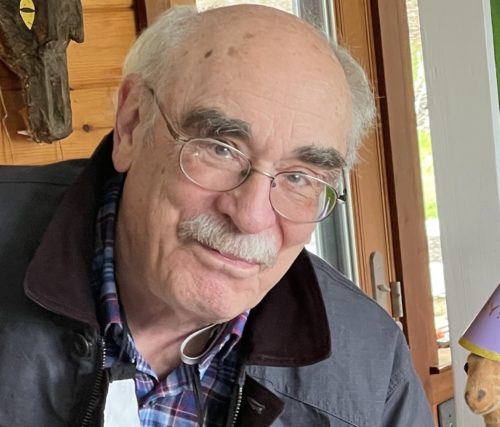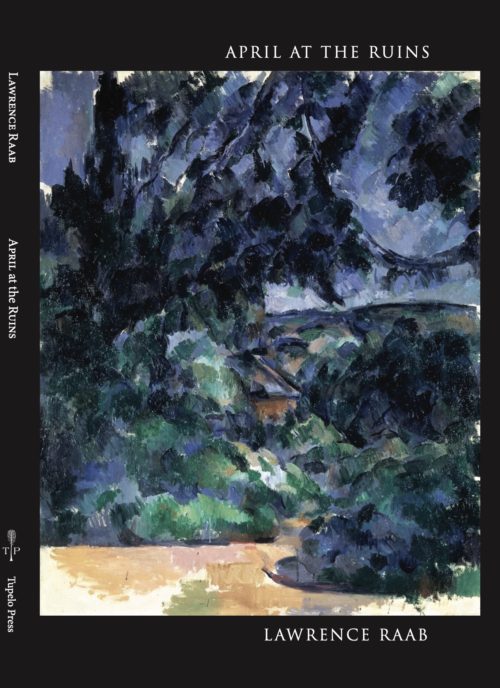1If there’s a late spring the plants suffer.They shouldn’t have beenso eager. Look at you, I say,you almost dead things,bent over, thrown outof the celebration. Just look around and seewhat you could have beenif only you had waited.But who speaksto the flowers these days?They aren’t hiding anything from us. 2In the early morning, frost catcheshold of the new buds that daredto open. Now, thinks the tree,I’m going to have to do this all over,but next time the leaves will be smaller,and more vulnerable, and I myselfwill be the weaker for it. 3Come out, come out the children beg.What do they know? 4That all that we behold is full of blessings? 5But can this really bewhat Wordsworth was thinkingas he hiked around the lakes,making his way from one ruin to anotherin 1798, or five years earlierwhen he stood with his sisterbeside the same stream, and the wideexpanse of Nature spoke to him,not as a poet might pretend,but as he felt itin the blood,and along the heart— 6So what do we have to say for ourselves?When it’s hot the plants suffer.When it’s too wet—they also suffer. 7Ah Nature,surely we’ve betrayed the heart that loved us. Or to be more precise,could never love us—not as we wished to be loved,as if we were still childrenand the worldwas trying to touch us.Shhhhit might be trying to say.Once we were children together.Now listen.That time is past.
April at the Ruins
Feature Date
- May 26, 2022
Series
Selected By
Share This Poem
Print This Poem
“April at the Ruins” from APRIL AT RUINS: by Lawrence Raab.
Published by Tupelo Press on April 01, 2022.
Copyright © 2022 by Lawrence Raab.
All rights reserved.
Reproduced by Poetry Daily with permission.

Asher Auel
Lawrence Raab is the author of ten collections of poems, most recently April at the Ruins (Tupelo, 2022). His other books include Mistaking Each Other for Ghosts (Tupelo, 2015), which was longlisted for the National Book Award, and named one of the Ten Best Poetry Books of 2015 by The New York Times, and What We Don’t Know About Each Other (Penguin, 1993), a winner of the National Poetry Series and a finalist for the National Book Award. In 2016 Tupelo published his collected essays, Why Don’t We Say What We Mean? He is the Harry C. Payne Professor of Poetry Emeritus at Williams College, where he taught for forty-two years.

North Adams, Massachusetts
Lawrence Raab has long been one of American poetry’s most authentic, most perfectly modulated voices. Yet in these new poems, he boldly risks unguarded measures and urgent sounds. This is a book of summonings: into the dark wood; into the night music which might be, if memory proves to be something other than an abyss, the frontier of eternity. There are supernal tensions on every page here, and everywhere, just at the horizon, unprecedented daybreak.
—Donald Revell
Every poem in April at the Ruins is a powerhouse: rich, quietly essential, profoundly lucid. Many have flavors of the best parables or folk tales, bringing us into intimate relation with mysteries and transformations abounding around and inside us. These poems prove that one of the only true forms of consolation is giving darkness its due.
—Amy Gerstler
Lawrence Raab is a genuinely dark philosophical poet, a lifelong and expert student of lucid dreaming and paradox— the sensation of waking up to the fact of being asleep. His poems lead you into, then trap you, in strange worlds, boxes constructed of story, logic, and aphorism, which are then revealed to be exactly like life itself.
—Tony Hoaglan
Poetry Daily Depends on You
With your support, we make reading the best contemporary poetry a treasured daily experience. Consider a contribution today.



